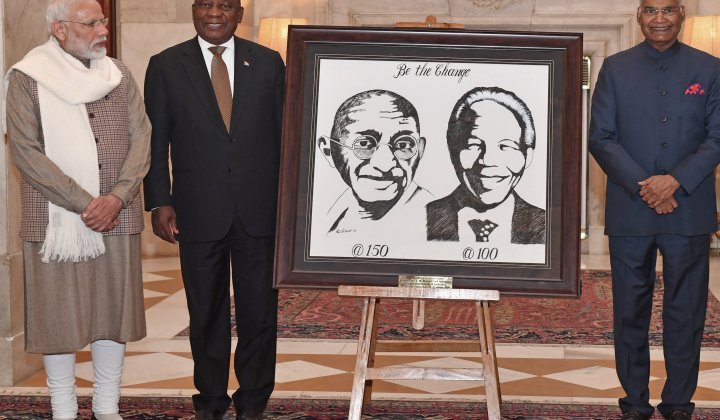Coaching is becoming an increasingly important tool to help African leaders meet the business and personal challenges they face on a day-to-day basis. While South African coaching models have typically drawn on a western paradigm, I prefer to approach each interaction by asking: “How can we enhance the coaching of African leaders to make it more relevant to the African context?”
Uniquely African challenges
Africans have a long history of fighting colonial legacies, but now they are emerging confidently as leaders with their own distinct voice. However, there are a vast array of issues influencing African leaders, which coaches cannot ignore. For example, most African countries, including South Africa, are shaped by profound diversities in cultures, languages and traditions. Not only must leaders be attuned to these, but they must also continue to deal with a legacy of colonialism and western patriarchy. Coaches need to question and understand these influences and how they manifest in society and the workplace.
In addition, in leading African economies like South Africa, Nigeria and Kenya, to list just three, leaders are also being challenged to tackle the demands of competing on the world stage and in global markets that are dominated by fast-moving technological progress. At the same time, fundamental basic issues of poverty, unemployment, social inequality and a lack of infrastructure and resources continue to dominate the landscape, as they do in many emerging markets.
...embedding trust is vital to the African leader...
Coaching effective leaders
Given this delicate balance, professionals who coach in Africa have to recognise and understand the African milieu. This is not to say they need to rule out the western influence to coaching and the value it has brought to the profession, but rather that there needs to be an appreciation of the adaptation required to suit leadership coaching which speaks directly to the African leader’s unique challenges.
On the one hand, coaches must recognise the value inherent in the foundations of coaching; these are constant and do not change. For example, the insights of 1980s business coaches like Graham Alexander and Alan Fine, together with Sir John Whitmore’s GROW (Goal, Reality, Options and Will) model and other International Coach Federation competencies are still extremely influential in Africa’s coaching framework. These models are process driven and goal orientated, and they call for the coach to help identify each leader’s goals and what action steps are needed to achieve these ambitions.
That said, it must be recognised that by tailoring this approach to better suit Africa’s unique challenges, the coaching experience can be even further enhanced.
How do you go about achieving this? Firstly, it is vital that coaches get to know their clients intimately, as multi-faceted individuals. This helps to build trust and develop a rapport. This level of connection allows the coachee to be genuine and authentic, and enables the coach to develop a keen appreciation of where this leader has come from, the trials they’ve faced and how they have overcome these to achieve success. Once the relationship has matured to this stage, only then is the client truly ready to start working on their current challenges and the issues at hand. They are able to say: “I trust you in this relationship, so let us start the journey of you helping me to explore the issues, get to a solution, and help me get a clear vision of where I am going with this.”
Once a partnership of this depth has been solidified, coaches can then get down to work. But again, they cannot apply the traditional approach of simply jumping into the process of identifying goals, rather coaches must start by framing the process of goal identification within the context of the challenges facing this leader, address those, and only then develop a strategic action plan.
Chairman of the Africa Board for Coaching, Consulting and Coaching Psychology, Dr. Mongezi Makhalima calls this a ‘fit-for-purpose’ approach that requires coaches to be extremely versatile and able to adapt their approach to suit each situation. Coaches have to know exactly what each client requires from a session. It can never be the coach’s agenda – it is always the leader’s agenda that drives the process. At all times, the individual must be at the centre of the process.
Makhalima clarified this idea when he wrote in a 2018 article for Leader: “It is important to keep in mind that coaching is not about balancing the numbers: it is about developing individual capabilities for exponential collective impact. Like trust, respect and loyalty, it has no formula.”
Action through being
While embedding trust is vital to the African leader, what is increasingly becoming a drive across the continent is for African leaders to be motivated into action. Facing myriad issues across all spectrums of society, African leaders do not have the luxury of time and they cannot afford to prevaricate over decisions which have the potential to positively impact the continent. As such, there is no doubt that action needs to be a critical focus of coaching. To this end, a focus on marrying action-driven coaching with a humanistic African approach will certainly ensure a far richer outcome.
...they must also continue to deal with a legacy of colonialism and western patriarchy.
This starts by creating a supportive space that gives leaders the room to think through challenges and approaches. Coaches should spend time allowing the leader to ‘be’. This process enables Africa leaders to better understand themselves and their context. It sets up the coach as the supportive companion capable of creating a place of safety.
GIBS Research Associate and business coach, Dr. Natalie Cunningham, speaks to this well when she talks about coaching providing a reflective, quiet space. She believes leaders must take time to reflect, as this helps them to unlock their strategic thinking and establish what they need to do to achieve their objectives and – all importantly – achieve results.
To enable coaches to effectively create this space, I believe coach training, specifically in the African context, must focus on teaching coaches the competency of listening, attending and discerning; shifting from mere questioning to inquiry. Again, while this is not unique to coaching an African leader, it is critical for both context and being attuned to one’s coachee. This approach has become much more necessary in a fast-changing and volatile world where the pressure to perform is growing and an action-directed approach dominates.
An expanding footprint
As coaches, it is our role to guide leaders towards their goals with confidence but, in the African context, it is also about helping clients to tap into their cultural values of Ubuntu (compassion and humanity) and Kgotla (a public meeting, community council or traditional law court). It is about humanising not only the relationships between the coach and the client but also giving African leaders the ‘permission’ to carry these values into their leadership roles.
Coaches should spend time allowing the leader to ‘be’.
Here again, coaches can help by modelling how leaders should respond to their employees. After all, effective coaching should empower leaders to be coaches themselves and this can and should play out within the coaching environment, giving coachees an appreciation of how they need to show up as leaders capable of building relationships by showing an interest in their employees and helping them thrive.
These values are central to the relationship paradigm of African leaders, where trust and collaboration are key concepts. But it is important to acknowledge that this is not a purely African concept. Business coach Jenn Wicks says: “As organisational coaching grows in popularity, more and more leaders recognise coaching as a way to achieve business results by focusing more on people, not only as a way to be better at business, but also to be more in alignment with core values and emphasise the human side of the modern workplace.”
The coach must never lose sight of the fact that creating capable and sustainable future leaders is an honour and a privilege, but also a great responsibility. What leaders take away from coaching sessions should still have an impact on them five years down the line, and the effects of this investment should ultimately ripple through a leader’s organisation and across society.
To achieve this, I believe coaches need to be both relevant in understanding the 'macro-context' of their coachee (cultural, social, economic and business) but also focus on the human effect of coaching. In this way, they are also attuned to the ‘micro-context’ of their client (the emotional and internal reality of the leader). Coaches need to genuinely say: “I hear you”. They must acknowledge the person before them, delve into what makes them tick and use these insights to unlock ideas capable of growing leaders to think beyond their narrow view of their own potential. Coaching is about giving leaders the confidence to strategically achieve desired results.
In the African context, this is made all the more challenging due to the realities and tensions inherent between action and ‘being’, between global and local and between the individual and the collective. But, when African leaders can approach these dichotomies with confidence and authenticity, they can serve effectively.
It’s up to the coach, however, to unlock this magic.
Five tips for coaching African leaders:
1. Coaches need to gain a holistic view of their clients by inquiring around the biases that influence their leadership styles in the broader African context.
2. Recognise that there is strength in diversity and acknowledge the power of being African.
3. Embrace the principles of Ubuntu and Kgotla. By understanding the idea of community relationships and an appreciation of where the African leader comes from, coaches can create the space for African leaders to be themselves.
4. Take a balanced approach that embodies the best from both western and African frameworks. African leaders need to be action-driven and get results, but not at the expense of the leader as a person.
5. Coaching needs to be relevant to what African leaders need, globally and locally. It needs to honour global challenges within an emerging market context. In business coaching specifically, this means understanding business in an African context.
This series is brought to you by the Personal and Applied Learning (PAL) department at GIBS. PAL is responsible for Coaching@GIBS and Facilitation@GIBS , underpinned by a philosophy of: 'The business of being human.'





